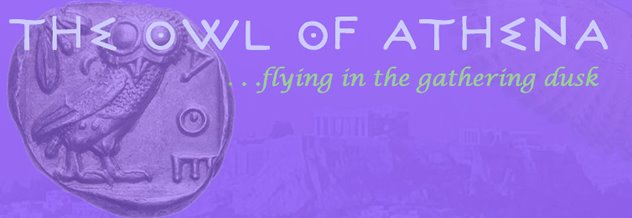 The conflict between privacy and celebrity has finally reached the point of pure idiocy. Actually, it already had, but the recent flap concerning Tiger Woods (who has actually earned his fame) points to the absurdity with which modern media attend to matters that would once have been purely private.
The conflict between privacy and celebrity has finally reached the point of pure idiocy. Actually, it already had, but the recent flap concerning Tiger Woods (who has actually earned his fame) points to the absurdity with which modern media attend to matters that would once have been purely private.I don't know why Woods slammed into a tree in the middle of the night. And unless it somehow affects national security (as the also-recent flap concerning party crashers at the White House might), I'm content to keep my nose where it belongs. In my own business.
But prurient interest in what goes on in other people's houses seems to have become an international pastime. Witness the tragicomic antics of the "new" royal family in Britain, where the intensity of this kind of curiosity seems to have ramped up, and of which I was reminded last night as we watched Helen Mirren's performance as Elizabeth II in Stephen Frears's film The Queen. Never having met QEII herself, I can only judge the acting job superficially, but I was completely taken in by the compelling portrayal of a woman caught between the worlds of restrained tradition and media frenzy.
Queen Elizabeth's initial reaction to Princess Diana's death seems to have been that even though Diana was a public figure, her funeral should be private (there were, after all, children involved here). But nobody in the public eye--especially anyone who has played the public for sympathy (whether deserved or not)--gets privacy any more. The outpouring of grief over Diana's death fueled tabloid hysteria almost to the point of conflagration, as if the papers and television realized that they were losing a cash cow and had to wring out every byline and lurid headline before the furor itself died out.
Nowadays, celebrity is being sought for its own sake. Andy Warhole's fifteen minutes of fame idea has become a life-goal for some people. Substance and accomplishment are no longer criteria of fame. Instead, publicity seems to be the sole measure: whoever can garner the most coverage becomes the news item du jour.
All this is one more indication of the shallowing (probably not a word) of the cultural pool of metaphor. No longer deepening through shared experience, interesting connections, or intellectual freshness, the pool of which I frequently speak is just plain drying up. Metaphors are becoming predictable and stale (like the fifteen minutes of fame quip itself), and even the word "like" (which used to signal an upcoming comparison) has become a vocal mannerism equivalent to "uh" or "you know."
The only still-rich sources of metaphor seem to be science and technology, but even these are turning out tropes based on the rampant growth of social media. So "tweet" and "twitter" no longer refer to sounds made by birds, but rather to noises made by people seeking fame in cyberspace. Science contributes to new words that refer to increasingly short attention spans: nanosecond and (frequently used inappropriately) quantum leap. A quantum is actually really tiny ("quantum theory deals with the tiniest things we know, the particles that atoms are made of"), rather like the brains of those who seem to be operating the news media these days. Ahem.
I don't really want to belabor my point (because, as you know, I tend to go on and on about things), but I do so miss the days when I didn't really know anything about the lives of those making the news. In fact, all I really care about Tiger Woods is how he plays golf. Although I appreciate the example he has been setting for young people, I'm not going to be using any sports figure as an example when it comes to raising children--unless, of course, that sports figure also turns out to be a Rhodes Scholar or a brilliant scientist or an inspiring teacher as well.
Metaphor is about complexity; the more we know, the more creative the connections we can make. Perhaps now is the time for us to turn off our television sets and bake our own bread. Who knows what would happen if we taught our kids to notice what happens when raisin bread rises, rather than what the latest talentless nincompoop is doing in the latest media circus.
Image credit: Henryk Siemiradzki, A Christian Dirce, nineteenth century. The painting depicts Nero with an executed Christian woman in his circus (Wikimedia Commons). Comparisons of current cultural events and those of imperial Rome are commonplace these days, but not inappropriate. For more on this topic, see Cullen Murphy's recent book, Are We Rome?

